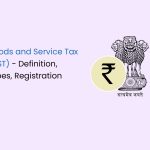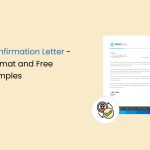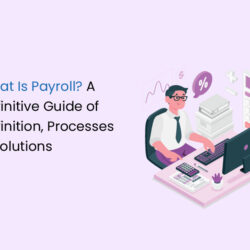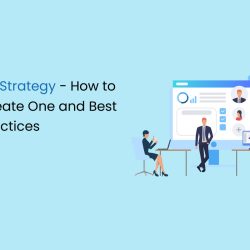In today’s fast-paced professional landscape, it’s crucial to occasionally hit the pause button on our careers to reassess our goals and aspirations. Career breaks offer invaluable self-reflection and personal growth opportunities, allowing individuals to recalibrate their paths and make informed decisions about their futures.
In this blog, we’ll delve into career breaks, explore why they are essential, outline practical steps for planning a successful break, and address common questions and concerns.
What is a Career Break?
A career break is a mutually agreed time off from work for personal or professional development or family reasons. These breaks usually range from a month to two years. Still, some people may opt for shorter breaks initially to try out new activities and decide to continue longer.
Career Break vs Sabbatical
A career break is when an employee takes an unpaid leave of absence to pursue personal growth, learn new skills, or travel the world. This is often seen as an opportunity to recharge and refocus and can be a great way to gain new experiences and perspectives.
On the other hand, a sabbatical is a more structured form of leave typically granted to employees who have been with a company for a certain length of time. Sabbaticals can be paid or unpaid and are designed to help employees focus on personal or professional growth. This can include research, training, or travel and is often seen as a way to foster innovation and creativity within an organisation.
Purpose of a Career Break
Taking a career break is a decision that many professionals make every year. Still, often, it is to gain perspective on their career paths, explore new interests, take some time off from the usual hustle and bustle of professional life, and even travel the world.
Taking a career break gives individuals the freedom to explore potential opportunities and personal interests that they may not have had time for in the past due to their professional commitments. This break can also provide individuals with a chance to prioritise their mental health, take some time to recuperate, and find more profound clarity on what it means to follow their professional and personal needs.
Overall, taking a career break can be an enriching experience and help individuals gain a new perspective on their life and career goals.
Benefits and Challenges
The benefits and challenges of taking a career break are as follows:
Benefits
The benefits of career breaks are as follows:
- Re-Energising and Appreciation: Taking a career break allows individuals to step away from their daily routine, helping them recharge and gain a fresh perspective on their career choices. It provides a much-needed pause to reflect on why they chose their career path initially, reigniting their passion and commitment.
- Emotional and Mental Clarity: Stepping back from the constant demands of work and life enables individuals to prioritise what truly matters to them, leading to greater emotional and mental clarity. This clarity often results in a better work-life balance, contributing to overall well-being and satisfaction.
- Exploration and Growth: Career breaks allow for exploring new interests, hobbies, and experiences that may have been neglected during busy work schedules. Individuals can develop new skills and pursue passions put on hold due to work commitments, fostering personal and professional growth.
- Networking and Relationships: During a career break, individuals may have the chance to connect with people from different industries or backgrounds, expanding their professional network. Additionally, they can devote more time to nurturing personal relationships with family and friends, strengthening bonds and enhancing overall quality of life.
Challenges
The challenges with taking a career break are as follows:
- Work Experience Gap: A significant concern is the potential gap in work experience, which may make it challenging to secure a job upon returning to the workforce. This gap could also lead to a lower salary, as individuals may be perceived as less experienced compared to peers who have continued working.
- Limited Networking Opportunities: Not being actively engaged in work can result in limited access to professional networks, hindering the ability to find job opportunities or establish new connections. Maintaining networking efforts during the break and staying connected through online platforms can help mitigate this challenge.
- Skill Upgrading and Retraining: After a career break, individuals may need to invest time and resources in retraining or updating their skills to align with industry advancements. This process can be time-consuming and may necessitate starting at a lower level than previously held positions.
Reasons to Take a Career Break
The reasons to take a career break are as follows:
- Reduce Work-Related Stress: Taking a break from work is an effective way to combat workplace stress and burnout. A career break can help an individual escape a toxic work environment, recharge, and return with renewed energy and enthusiasm. This extended break allows them to pursue other interests, travel, learn new skills, and come back with a fresh perspective to improve work performance and productivity.
- Spend Time with Family: A career break allows an individual to spend quality time with family, set priorities, and balance between family and work. It’s a perfect opportunity to enrich your family relationships and reflect on their career goals. This break can help recharge their batteries and return to work with renewed energy.
- Care for Ill Family Members or Focus on Health: A career break can give an individual time to care for sick family members or focus on their well-being while balancing work and personal responsibilities. It can allow them to recharge, come back refreshed, and explore new interests and opportunities.
- Start a Business: Starting a business is a complex process that requires thorough research and planning. It involves gathering relevant information about the industry, analysing the target market and competition, and identifying the resources needed to run the business. They must also find a suitable location for their business and secure the necessary funds to get it up and running. However, if they’re willing to put in the effort, starting a business can significantly increase their income and achieve financial independence.
- Advance Education or Expand Skill Set: To progress in one’s career, obtaining more educational qualifications or expanding one’s skill set to improve competencies is essential. This can be achieved by taking courses or enrolling in certificate programs, working part-time, or volunteering to develop new skills that can be transferred to their job when they return or switch careers.
- Travel or Work Abroad: Taking a career break to travel or work abroad can be a life-transforming experience that can enrich an individual’s communication, interpersonal, and critical thinking skills. By interacting with people from different cultures, they can better understand the world around them. Furthermore, travelling enables them to build a vast global network with long-term career benefits.
How Long Should a Career Break Last?
The length of a work break varies based on goals and circumstances. A 1-2 years break may be reasonable for career advancement, while 2-6 months may be enough for reflection and planning. It is important to remember that longer breaks may make re-entering the workforce harder, and consider the financial situation before taking time off.
How to Plan for a Career Break
You can plan for a career break by:
- Increase Savings: When planning for a career break, saving enough money to cover all your expenses while you are off work is crucial. The amount you need to save will depend on several factors, such as your current salary, the duration of your break, and your budget for bills, emergencies, and other expenses. It’s wise to save more than your budgeted amount or look for ways to supplement your income, just in case your time away from work exceeds your expectations. Saving more money will also give you additional time to find your desired job.
- Make a Detailed Schedule: It is crucial to create a comprehensive and adaptable schedule that outlines the tasks you need to perform and their expected duration during the planning process. An agenda or a detailed calendar schedule can help organise your plans and estimate the expected expenses and other necessary preparations. For example, your schedule may include details of the places you plan to visit if you are travelling, essential dates to connect with your professional network, and courses you need to take to enhance your skills or manage your business.
- Understanding Obstacles: It is necessary to be aware of the challenges that may arise during a career break and know how to overcome them. These challenges can range from decreased income to insufficient time to deal with important matters. For instance, taking a break to raise children or care for a sick family member may require spending more time with them. Still, it could also lead to financial difficulties. Thus, planning and preparing for extra assistance if needed or exploring options to earn extra income, such as freelancing, is advisable.
- Give Enough Notice: Notifying your employer before taking a career break is essential. Once you have decided on the timeline, inform them politely so you can leave on good terms. This way, you can also find out if your position will be available when you plan to return, and the company will have enough time to prepare for your departure. Giving at least two weeks’ notice is recommended as it increases the chances of your employer being open to rehiring you or providing you with a reference.
- Learn New Skills: During your career break, it’s a good idea to take some time to learn new skills that relate directly or indirectly to your career. These skills may include transferable skills that can be useful in various industries. Whether travelling, caring for a loved one, volunteering, or taking a course, you may learn new relevant skills when you resume working. Some transferable skills valuable to your career include communication, negotiation, time management, problem-solving, and analytical skills.
- Maintain Professional Network: A strong professional network is crucial for a successful career. Even during a career break, it’s vital to maintain your network to make your return to work smoother. Before taking a break, consider ways to stay in touch with key contacts, like scheduling meetings or sending regular updates. Blogging or social media can also help you stay connected. By keeping your network active, you’ll be better positioned for career success when you’re ready to jump back in.
- Prepare to Discuss Employment Gaps: When you’re applying for a job, it’s essential to be prepared to explain any gaps in your employment history. Many employers will ask about them, so having some talking points ready is a good idea. You can address your employment gaps in your cover letter or resume or during job interviews. It’s also important to consider how your time off can benefit your new role. You may have developed new skills or increased your competency during your time away, which could make you an even stronger candidate for the job.
- Make a Return-to-Work Plan: When you plan to return to the workforce eventually, it’s a good idea to prepare a return-to-work plan to stay ready. You can create a list of professional development classes to take or books to read, as both can benefit you in the long run. Additionally, you can jot down professional connections to stay in touch with or industries to send job applications to. Before the planned end date for the career break arrives, you may begin searching for a job early or contact your previous employer to discuss returning to work.
How to Explain Gaps in Your Resume
You can explain a career break in your resume by:
- Demonstrate Continuous Learning: Engage in activities like volunteering on a board or taking online classes to showcase your commitment to staying current in your field.
- Stay Positive: Instead of viewing a resume gap negatively, maintain a positive attitude and explain any employment gaps constructively during interviews or in your cover letter.
- Add a ‘Career Break’ Placeholder on Your Resume: Treat your career break like any other job by listing it with a title such as Career Break, Planned Career Break, or Professionally Active Career Break, along with the dates it occurred. Research shows that candidates who provide reasoning for their work gap on their resume and cover letter receive 60% more interviews than those without explanation.
Tips for a Career Break
Some tips for a career break are as follows:
- Reflect on your current career and assess your achievements, challenges, and overall satisfaction. Consider the direction you want to take and how the break aligns with your long-term goals.
- Always have a backup strategy to adapt to unexpected situations without derailing your career objectives.
- Build and maintain a robust professional network for career success during and after a break.
- Use your career break to enhance your skills and stay competitive.
- Keep a detailed record of your career break experiences to showcase growth, achievements, and skills acquired when you return to your career.
Frequently Asked Questions
How is a sabbatical different from a career break?
Sabbaticals and career breaks differ in that career breaks are unpaid and can last any length of time. In contrast, sabbaticals are more formal and offer job security upon return. Sabbaticals last around six months and are common in some industries, such as education and technology.
How long is an acceptable career break?
Career breaks can last months to years, depending on the reason and how it's spent. Employers want to know the benefits. When returning to the job market, consider explaining the gap and enhancing your resume with personal and professional development.
How many months is a career break?
A period of six to twelve months is decent for a career break.
Is it okay to put a career break in your resume?
Consider adding ‘Career Break’ in your professional experience section to explain gaps in your employment history. This will help the applicant tracking systems, and recruiters understand the reason for the gap.
Do you get paid on a career break?
Career breaks are unpaid time off work. Some companies offer reduced pay or a retainer to ensure employees return. Sabbaticals and career breaks are usually unpaid, while prolonged absences are career breaks. Professional breaks last a few months.
Will taking a year off hurt my career?
You can take a year off without losing your job. If you're unhappy with your job, a gap year can help by giving you time to learn new skills, find a new job, or start a business. Although it may require hard work, it will be worth it in the long run.
How do I return after a career break?
Returning to work after a career break can be daunting. Start by assessing your skills, reconnecting with colleagues, and researching job descriptions. Narrow down your non-negotiables, learn new skills, and update your resume and portfolio. Find a recruiter to help navigate the job market.





















